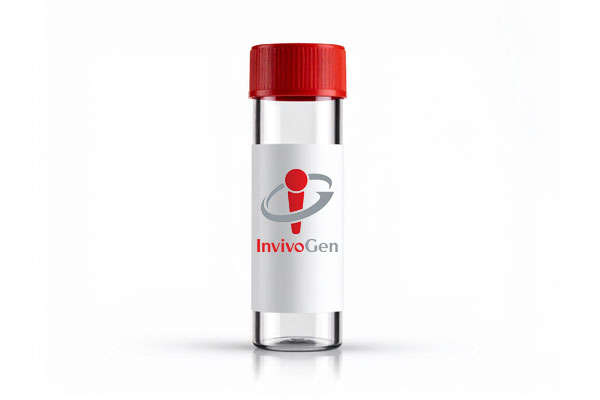Anti-hEGFR-hIgG1
-
Cat.code:
hegfr-mab1
- Documents
ABOUT
Anti-human EGFR - Cetuximab biosimilar - CAS #205923-56-4
Anti-hEGFR-hIgG1 is a biosimilar antibody of Cetuximab, a chimeric human/mouse IgG1 antibody targeting the epidermal growth factor receptor (EGFR). EGFR is a cell surface receptor overexpressed in many types of cancer promoting cell proliferation, survival, and angiogenesis. Cetuximab is FDA-approved for the treatment of metastatic colorectal cancer and metastatic squamous cell carcinoma of the head and neck.
Anti-hEGFR-hIgG1 comprises the variable region of Cetuximab and the IgG1 constant region of Cetuximab for high effector functions.
Cetuximab inhibits the binding of epidermal growth factor (EGF) or transforming growth factor-α (TGF-α), the natural ligands of the EGFR, and induces receptor internalization and degradation. Due to its IgG1 constant region, Cetuximab also induces cell death through antibody-dependent cell-mediated cytotoxicity (ADCC).
This antibody can be used for screening and neutralization assays to block EGFR signaling. It can also be used together with the human EGFR-expressing Raji target cell line for ADCC Fc effector studies either with peripheral blood mononuclear cells, natural killer (NK) cells, or T cell-derived Jurkat reporter cells (see figure).
Key features
- Each lot is functionally tested and validated
- The complete sequence of the antibody construct has been verified
- Absence of endotoxins determined by the EndotoxDetect assay
More isotypes of this antibody are available and can be used for comparison of biological activities such as ADCC (see in the 'upon request' section).
All products are for research use only, and not for human or veterinary use.
SPECIFICATIONS
Specifications
EGFR
Human
Flow cytometry, ELISA, Fc interaction studies, ADCC
Sodium phosphate buffer with glycine, saccharose, and stabilizing agents
Negative (tested using EndotoxDetect™ assay)
Flow cytometry, ELISA, Fc interaction studies, ADCC
Each lot is functionally tested and validated.
CONTENTS
Contents
-
Product:Anti-hEGFR-hIgG1
-
Cat code:hegfr-mab1
-
Quantity:100 µg
Shipping & Storage
- Shipping method: Room temperature
- -20°C
- Avoid repeated freeze-thaw cycles
Storage:
Caution:
Details
Cetuximab background
Cetuximab (ERBITUX®) is a chimeric mouse/human IgG1 monoclonal antibody (mAb) that specifically targets the epidermal growth factor receptor (EGFR). EGFR is a cell surface receptor overexpressed in many types of cancer, promoting cancer cell proliferation, survival, and angiogenesis, subsequently leading to tumor growth and metastasis [1].
Cetuximab binds to the extracellular domain III of EGFR, blocking ligand interaction and preventing receptor dimerization and activation triggered by its natural ligands, such as epidermal growth factor (EGF), transforming growth factor-α (TGF-α), amphiregulin, and heparin-binding EGF (HB-EGF) [2]. Due to its IgG1 constant region, it also induces receptor internalization, degradation, and cell death through antibody-dependent cell-mediated cytotoxicity (ADCC) [3-4]. Cetuximab is FDA-approved for a variety of cancer types, such as squamous cell carcinoma of the head and neck (SCCHN) and colorectal cancer [5].
References:
1. Vincenzi B. et al., 2010. Cetuximab: from bench to bedside. Curr Cancer Drug Targets. 10(1):80-95.
2. Li S, Schmitz KR, et al., 2005. Structural basis for inhibition of the epidermal growth factor receptor by cetuximab. Cancer Cell. 7(4):301-11.
3. Kurai J. et al., 2007. Antibody-dependent cellular cytotoxicity mediated by cetuximab against lung cancer cell lines. Clin Cancer Res. 3(5):1552-61.
4. Kimura H. et al., 2007. Antibody-dependent cellular cytotoxicity of cetuximab against tumor cells with wild-type or mutant epidermal growth factor receptor. Cancer Sci. 98(8):1275-80.
5. FDA website accessed in Dec 2024: https://www.accessdata.fda.gov/drugsatfda_docs/label/2019/125084s273lbl.pdf
DOCUMENTS
Documents
Technical Data Sheet
Safety Data Sheet
Certificate of analysis
Need a CoA ?




